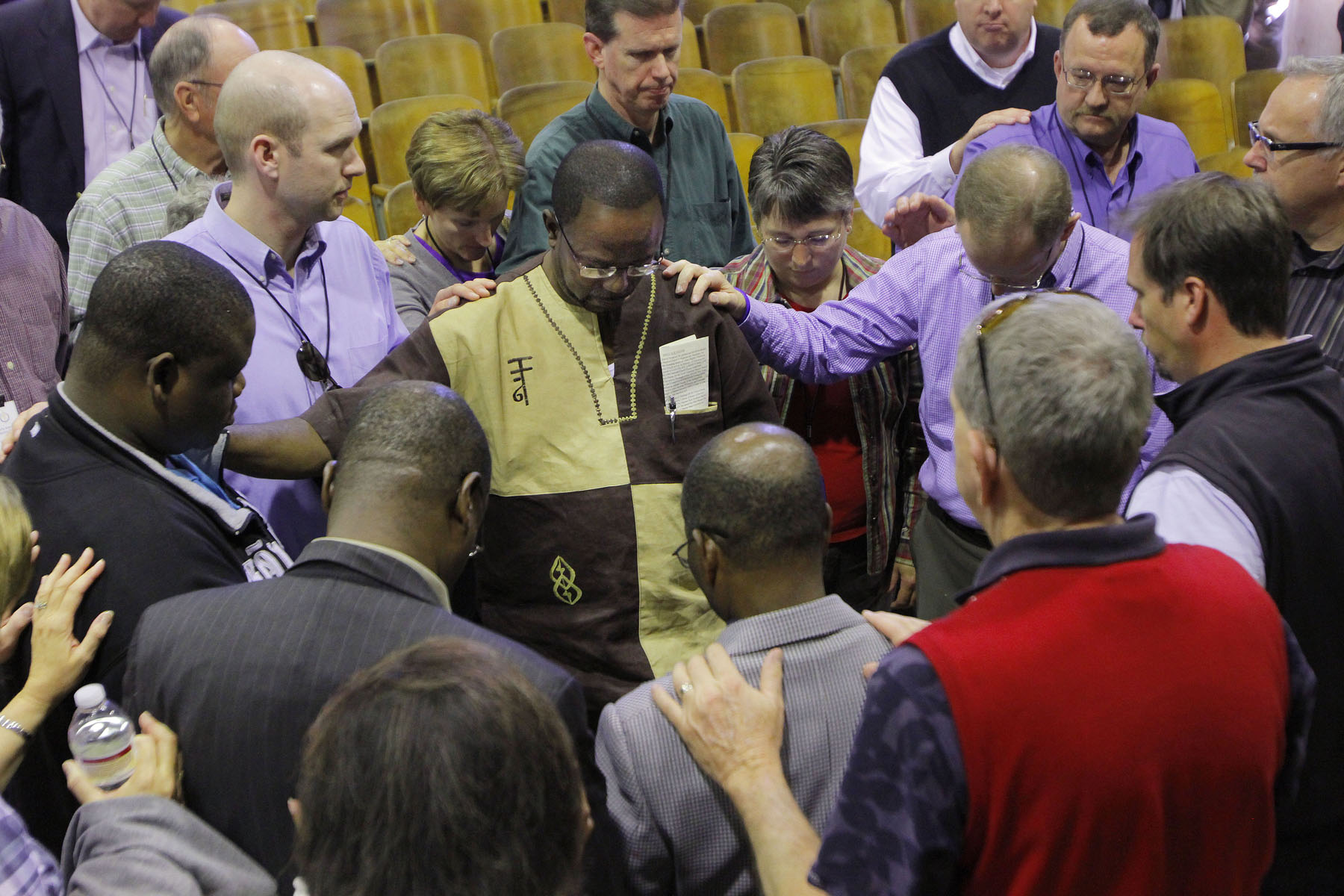
PHILADELPHIA (BP) — Philadelphia, the nation’s temporary capital in the 1790s while Washington, D.C., was being built, drips with American history.
Tree-lined streets downtown lead tourists past Independence Hall, the Liberty Bell Museum, Betsy Ross’ home and the grave of one of Philadelphia’s most famous sons, Benjamin Franklin.
Even the roots of Southern Baptists can be traced to the City of Brotherly Love. History buff David Waltz, executive director of the Baptist Convention of Pennsylvania/South Jersey, noted that Philadelphia not only was the birthplace of America but also the cradle of the Baptist denomination.
“Philadelphia was the home of the first Baptist association, founded back in 1707 and was home to the first national body of Baptists — the forerunner of the Southern Baptist Convention,” Waltz told a busload of North American Mission Board trustees and visitors during a Vision Tour of the metro area in October. “Back then, a Triennial Convention of Baptists met in Philadelphia every three years. So welcome back to your roots.”
But 304 years later, Philadelphia is far from a stronghold for Baptists — or evangelicals in general who account for an estimated 4 percent of the city’s 5 million people. There’s one Anglo-American congregation among the metro area’s 160 Southern Baptist churches. The rest are ethnic congregations.
“While 40 percent of Philly is African American, another 35 percent is [Hispanic],” said Stan Smith, state director of missions for the Penn/Jersey convention. “There’s a great transition underway between African American and Hispanic. Twenty percent of our Baptist churches speak a language other than English, and there are some 20 languages spoken in Philadelphia.”
With all its American history and folklore, Philadelphia is a city plagued by drugs and crime. Known as a city of strong ethnic communities — north and south Philly, for instance — Waltz said the metro area is dominated by street after street of row homes in neighborhoods beset by crack houses and gangs. A curfew was imposed on the city this year because of a rash of flash mobs by local youth.
“Like other major urban cities across North America, Philadelphia has a great deal of poverty,” Waltz said. “One challenge our churches face in the city is trying to help neighborhoods by buying rundown houses from the city for a dollar and fixing them up. Our goal is to clean up the neighborhoods.”
Among the SBC churches making a difference is Philadelphia: Bible Mission International, a 10-year-old Filipino congregation pastored by Roger Manao in the community of Olney, about 30 minutes north of downtown. The church is seeking to reach some 36,000 Filipinos who live and work in Philadelphia.
Philadelphia Bible Mission International averages 80-100 people in worship each week and meets in the chapel of 100-year-old gray-stone First Presbyterian Church, which does not charge them rent.
“Community is strong in Philly,” said Manao, who also is a church planter and pastor of Pottstown Church, a church plant in the borough west of Philadelphia. “Church planters must understand that and plant in that context. Here, people won’t leave their neighborhoods to go to church. They identify with their neighborhoods too strongly to do that, and some of that is ethnic-related.
In addition to the Pottstown Church, Manao’s north Philly church is working with another Filipino church plant in south Philly. In all, Manao has planted four Filipino churches in the Philadelphia area.
“Thank you for investing in and encouraging ethnic pastors,” Manao told NAMB trustees and leaders. “The only reason we have Filipino and other ethnic churches here is because of Cooperative Program giving,” he said, referring to Southern Baptists’ year-round channel for missions support.
Enoch Nyakoon Sr., a native of Liberia, pastors another ethnic SBC church in Philadelphia, Second Chance Community Church, which meets each Sunday in J. Hampton Moore Public School’s auditorium.
“We have seven to 10 people groups or tribes in our church, most from West African countries like Liberia and Nigeria,” Nyakoon said. “In Philadelphia, we have tens of thousands of people from West Africa — 40,000 from Liberia.” His church averages 75-100 people each week.
“Africa is the second-largest continent in the world. Our goal and vision is to have a multiplying church center here in Philadelphia for the people of Africa,” said Nyakoon, who moved to Philadelphia to plant churches among African people.
Noting that “the harvest is plentiful but the laborers are few,” Nyakoon is nurturing outreach to African immigrants in Philadelphia, including African Muslims and those representing the Mandinka, Ashanti and Bassa tribes, among others, of West Africa.
Referring to the fact that Philadelphia will be launched as a Send North America city next year as part of NAMB’s evangelistic church planting initiative, Waltz said, “I can’t help but believe that Southern Baptists want to have a major impact on Philadelphia, and that’s why we’re one of the 29 Send cities in 2012.
“Send North America: Philadelphia gives us an opportunity to re-establish a strong beachhead in Philadelphia, where Southern Baptists’ roots are,” Waltz added.
Waltz said he and his team must think like missionaries while emphasizing the need to plant more churches.
“In Alabama, two out of nine people or 22 percent are Southern Baptist. To have the same ratio here in Philly as in Alabama, we would need 10,000 more churches.
“Thanks for caring about Philly and about those of us who serve here,” Waltz told NAMB trustees and officers. “Thank you for your vision for planting churches and reaching our people. We know we cannot reach the Northeast without planting many more reproducing churches. We are so outnumbered and the lostness is so great, but we have a passion to see that change. Thanks for linking arms with us.”
–30–
Mickey Noah writes for the North American Mission Board. Get Baptist Press headlines and breaking news on Twitter (@BaptistPress), Facebook (Facebook.com/BaptistPress) and in your email (baptistpress.com/SubscribeBP.asp).

















